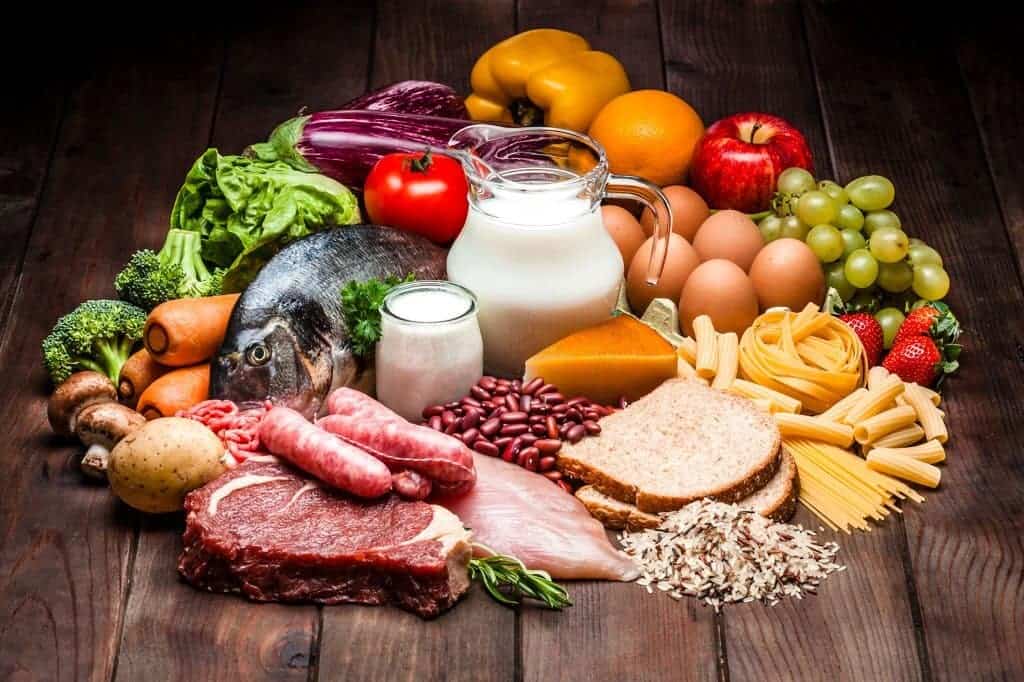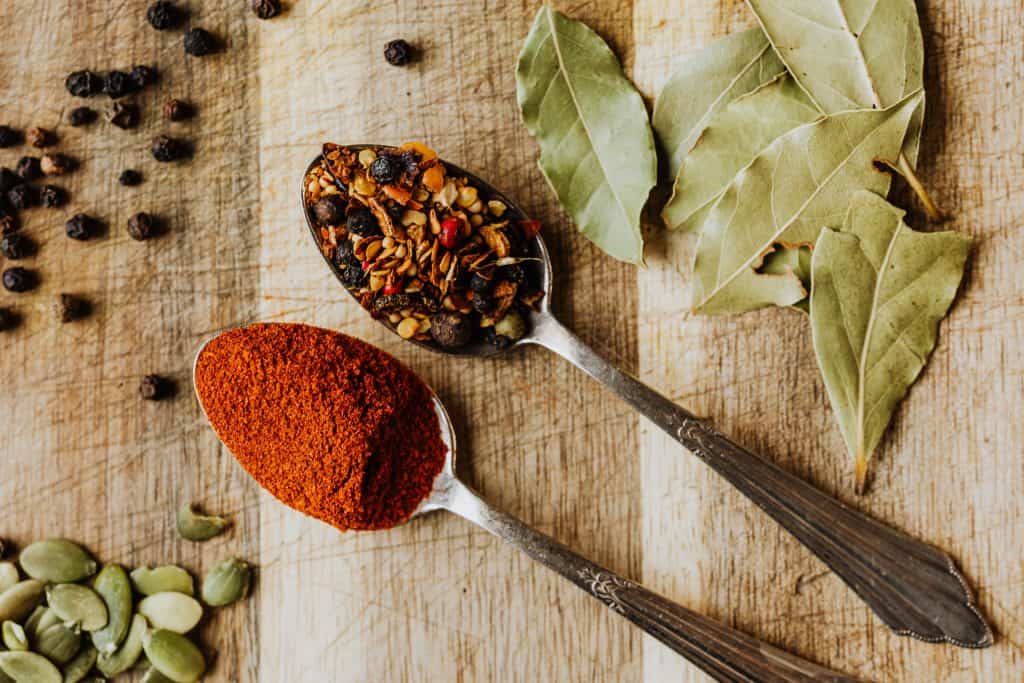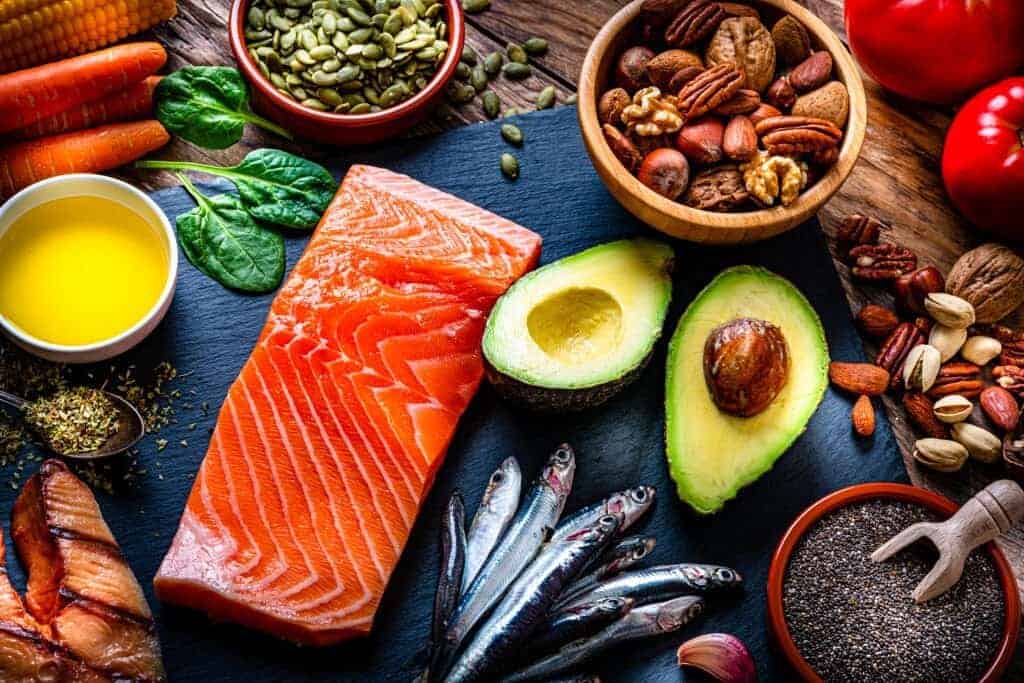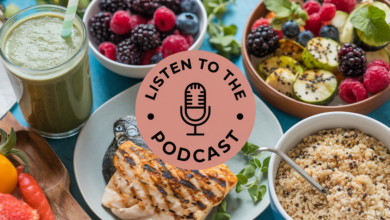How Live a Healthy Lifestyle

How would you describe your lifestyle? Is it healthy or unhealthy? If you answered ‘unhealthy’, then you should read this article “How to Live a Healthy Lifestyle”
The term ‘lifestyle’ refers to the way you live your life. Your lifestyle determines your health. There are several ways to improve your lifestyle. For example, you can eat healthier food, exercise regularly, sleep well, etc.
You don’t have to spend thousands of dollars on a gym membership to get fit and stay healthy. There are many free exercises that you can do at home.
You can also make some simple changes to your daily routine. These small changes will help you achieve your goals.
In this post, I am going to share with you how to have a healthy lifestyle by making some simple changes in your diet and daily routine.
Eat a healthy diet
How often should I eat? How much protein should I consume? What foods should I eat? These questions sound simple, but they aren’t. Eating a balanced diet is essential to maintaining good health.
Eating well is important for everyone, especially those who want to lose weight or gain muscle mass. The healthy food pyramid recommends five servings of grains, three servings of vegetables, two servings of fresh fruit, six ounces of meat, four cups of milk, and eight ounces of beans per day.
However, some people believe that these recommendations are too strict. They suggest that you only eat certain types of foods at specific times of the day. This means that you won’t get enough nutrients from your meals.
Eat a healthy diet includes a wide range of food groups. You can choose to eat more fresh fruits and vegetables, whole grains, lean meats, low-fat dairy products, fish, nuts, seeds, and legumes.
Vegetables are an important part of a balanced diet because they contain fibre, vitamins, minerals, antioxidants, and other nutrients. Some vegetables include broccoli, cauliflower, carrots, spinach, tomatoes, lettuce, cucumbers, mushrooms, onions, peppers, celery, and garlic.
Fruits are another great source of nutrition. They provide vitamin C, potassium, and fibre. Some examples of fruits include apples, bananas, oranges, pears,

Prepare your food correctly
Are you aware of the importance of preparing your food properly before cooking or consuming it?
The kitchen is where our lives begin. Food preparation has become a very important part of our daily life. Cooking is fun and exciting. It’s also considered a hobby, especially for those who love experimenting with new recipes.
However, some people don’t realize the importance of preparing their meals well. They often prepare their food incorrectly without knowing the consequences. This can result in food poisoning and other health problems.
Keep your kitchen clean and wash all utensils before cooking. You probably already know that washing dishes after using them helps prevent bacteria from growing. But did you know that cleaning your kitchen countertops also prevents bacteria from spreading?
Kitchen counters are often covered with food debris, grease, and other contaminants. These can easily spread germs to foods stored on the countertop. If left untreated, these microbes can cause serious health problems such as stomach ulcers or diarrhoea.
Cleaning your kitchen counters regularly can reduce the risk of developing food poisoning. In addition, keeping your kitchen clean can help prevent foodborne illnesses.
Cook food thoroughly
When cooking, make sure that you cook your food thoroughly. It’s important to heat your food until it reaches the right temperature.
If you overcook your food, you may end up wasting time and money. On the other hand, if you undercook your food, you could be exposing yourself to dangerous bacteria.
To ensure that your food is cooked properly, use a thermometer to check its internal temperature. Make sure that the surface of the food is hot enough to kill harmful bacteria.
You should also avoid eating raw eggs. Raw eggs are not safe to consume. They can carry salmonella bacteria. Salmonella can lead to severe illness.
Always keep raw eggs away from children. Children are particularly vulnerable to this type of infection.
Eat less salt and sugar

Sodium chloride (or table salt) and fructose are two common ingredients found in processed foods. They both contribute to high blood pressure and obesity. What should you eat instead?
High blood pressure is a major risk factor for heart disease and stroke. In addition, excess sodium increases the risk of developing diabetes and kidney stones. Excess sugar also contributes to tooth decay and obesity.
“Salt and sugar are bad for our health,” says Dr Michael Greger, director of nutrition at NutritionFacts.org. “We don’t need them.”
Sodium is a mineral found naturally in salt (NaCl), and it helps regulate blood pressure. Too much sodium can cause high blood pressure, heart disease, stroke, kidney stones, osteoporosis, and stomach cancer.
Sodium is also found in processed foods such as bread, cereals, soups, sauces, canned vegetables, frozen dinners, and snack foods. The average American consumes over 3,400 milligrams of sodium daily. That’s almost double the recommended amount of 2,300 mg per day.
You should try to limit your intake of processed foods and stick to fresh fruits and veggies instead. Try to prepare your meals from scratch whenever possible. This way you won’t be tempted to add extra salt to your dishes.
We’ve heard that sugar causes cavities and obesity, but did you know that sugar also affects our mood? Sugar has a direct effect on serotonin levels in the brain, which can affect our emotions.
Sugary foods contain high amounts of fructose, which is converted into fat inside the body. This leads to increased appetite and cravings for food. In addition, excess sugar consumption increases insulin resistance, which can lead to type 2 diabetes.
Sugars such as glucose, sucrose, lactose, maltodextrin, dextrins, and fructose are found in processed foods. These sugars are added during processing or manufacturing to improve taste and texture. They don’t necessarily add nutritional value to food.
Cut back on unhealthy fats

How much fat should I eat every day? Is there such a thing as too much fat?
Fat is essential for our bodies, but some types of fat are unhealthy. The American Heart Association recommends limiting saturated fat consumption to less than 7% of total calories consumed daily.
Saturated fat has been linked to an increased risk of heart disease and stroke. In addition, trans fatty acids (TFAs) found in partially hydrogenated vegetable oils increase cholesterol levels and raise the risk of cardiovascular diseases.
Transfat reduces HDL cholesterol and raises LDL cholesterol. It’s also associated with weight gain. TFAs are often used to extend the shelf life of packaged foods.
The best sources of unsaturated fats include avocados, nuts, seeds, olive oil, fish, and seafood. You should avoid fried foods, fast food, and other processed foods because they tend to be high in saturated fat.
Unsaturated fats reduce blood pressure and improve insulin sensitivity.
Are you aware of the benefits of unsaturated fats? They are essential nutrients that play a vital role in our body. Unsaturated fats include omega-3 fatty acids, monounsaturated fats, polyunsaturated fats, and saturated fats.
Saturated fat has been linked to cardiovascular disease and diabetes. Omega 3 fatty acids, however, have been shown to lower triglyceride levels, increase HDL cholesterol, and decrease the risk of heart attack and stroke. Monounsaturated fats also have health benefits. Polyunsaturated fats can lower LDL cholesterol and raise HDL cholesterol.
Omega 3 fatty acids are beneficial for lowering triglycerides, improving insulin sensitivity, and reducing inflammation. Therefore, they should be included in your daily diet.
Avoid ultra-processed foods

What exactly is processed food? And why should I care?
If you’ve ever wondered what makes some foods seem healthier than others? Processed foods are often high in sugar, salt, fat, or additives. They also tend to contain fewer nutrients than whole foods.
Processed foods are usually highly refined, packaged, and preserved. These items are created using chemical processes such as hydrogenation, bleaching, and pasteurization. Ultra-processed foods are those that have undergone multiple processing steps.
These foods are very easy to overconsume and are linked to many health issues. Ultra-processed foods are linked to obesity, type 2 diabetes, cancer, heart disease, and more. Some of these products even contain artificial ingredients. Ultra-processed foods are typically made from cheap ingredients like corn syrup, white flour, and refined sugar. They’re often loaded with preservatives, artificial flavours, colours, and sweeteners. Avoiding these foods will help you lose weight, reduce inflammation, improve blood pressure, and lower cholesterol levels.
Avoid artificial trans fats
Artificial trans fat is a type of unsaturated fatty acid found in partially hydrogenated oils.
Trans fats are created by heating liquid vegetable oil at high temperatures, which causes it to become solid. They are used in processed foods because they increase shelf life and improve the taste. The problem is that they raise LDL (bad) cholesterol levels and lower HDL (good) cholesterol levels. This makes them a major risk factor for heart disease.
Foods containing trans fats may cause damage to arteries, which can lead to heart attacks and strokes.
The American Heart Association recommends limiting the intake of foods high in saturated fat and cholesterol, including butter, cream, whole milk, cheese, ice cream, fatty meats, deep-fried food, commercial baked goods, commercially prepared sauces, margarine, shortening, snack cakes, cookies, pies, pastries, chips, French fries, doughnuts, gravies, condiments, canned meat products, and pre-packaged snacks.
Use fresh extra virgin olive oil

Olive oil has become very popular lately because of its health benefits. The question is, should you be using extra virgin olive oil instead of regular olive oil?
Extra virgin olive oil (EVOO) is a type of olive oil that contains high levels of antioxidants and polyphenols. These compounds are believed to reduce inflammation and improve heart health. EVOO also helps prevent cancer and diabetes.
You don’t want to go overboard with your intake of fats or oils, especially those rich in omega-6 fatty acids. They can increase inflammation and raise cholesterol levels. If you’re looking to lose weight, then you might want to consider switching from regular olive oil to EVOO.
Extra virgin olive oil is healthy for you and helps prevent heart disease.
Enjoy plenty of fresh herbs and spices

What herbs and spices can you use to spice up your food without increasing its calorie count?
Herbs and spices are often overlooked when cooking, but they can enhance the taste of meals. Some experts say that herbs and spices can even reduce the amount of salt needed in recipes.
There are hundreds of herbs and spices out there, each with its unique flavour profile. Some are great additions to savoury dishes, while others go well with sweet foods.
These foods contain antioxidants and other compounds that may boost your immune system so Include them in your meals regularly to reap their many benefits
Avoid excessive consumption of alcohol

Alcohol abuse is a global problem. According to WHO estimates, alcohol kills nearly 3 million people each year. The harmful effects of drinking include liver disease, cancer, heart attacks, stroke, diabetes, and other health problems.
Drinking too much alcohol has become a major public health concern around the globe. In 2015 alone, alcohol was responsible for 4% of total disability-adjusted life years (DALYs) lost globally. This means that alcohol accounted for approximately 2.2 million DALYs lost due to its adverse health consequences.
Alcohol is a depressant drug that affects brain function. When consumed at high levels, it can cause memory impairment, cognitive deficits, and even death. If you drink regularly, try to limit your intake to no more than two drinks per day.
Even moderate drinking can cause health problems so avoiding alcohol altogether is better than consuming it in moderation
Stay hydrated
Are you drinking enough water? If you answered yes, then congratulations! You are already ahead of the game. Water is essential for life because it helps regulate body temperature, aids digestion, flushes toxins from the system, and provides hydration for cells.
The human body contains approximately 60% water. This means that you should drink at least 2 litres (about 4 cups) of water each day. Most adults only consume between 1.5 – 3 litres per day.
Water is essential for life because its molecules are large enough to pass through cell membranes without being absorbed into them. In addition, water has no calories or fat. Therefore, it does not contribute to weight gain.
Drink only safe water

What is waterborne illness?
Waterborne diseases are those that are spread through contaminated drinking water. They include cholera, dysentery, hepatitis, typhoid fever, polio, and other infections. These diseases can cause serious health problems such as diarrhoea, vomiting, dehydration, and even death.
Waterborne illnesses are common because they are easily transmitted from person to person via contaminated water. The main source of contamination comes from sewage systems, septic tanks, and polluted rivers and streams.
There are many ways to treat water including boiling, chlorination, filtration, ultraviolet treatment, reverse osmosis and distillation. However, these methods do not remove all contaminants.
Therefore, it is important to always boil or filter your tap water before using it for drinking or cooking purposes.
If you live in an area where there is a risk of waterborne diseases, consider installing a water purification system. It will help ensure that you get clean, safe water every time you need it.
Don’t smoke

It seems like everyone knows smoking is bad for you, but why does it take decades before society starts taking action?
Smoking has been around since ancient times, but only recently did it become widely accepted as being unhealthy. The World Health Organization (WHO) estimates that tobacco kills nearly 6 million people every year worldwide. In addition, smoking causes cancer, heart disease, stroke, chronic obstructive pulmonary disorder (COPD), and other diseases.
Although smoking is illegal in some countries, it continues to be a major public health problem. This infographic shows the impact of smoking on individuals and society.
There are many ways to help people stop smoking. For example, nicotine replacement therapy (NRT) products can help reduce cravings. Nicotine gum, patches, lozenges, inhalers, and nasal sprays are available over the counter. Some medications may also help smokers quit.
Smoking cessation programs are offered by most hospitals and clinics. Programs typically last 12 weeks and involve counselling, support groups, and medication.
Be active

You’ve heard it before, but did you believe it? Physical activity is essential for maintaining a healthy lifestyle. It has numerous benefits for both your body and mind.
Exercise indeed improves our overall health. Regular physical activity reduces the risk of developing cardiovascular diseases, type 2 diabetes, some cancers, osteoporosis, depression, anxiety, dementia, Alzheimer’s disease, and even obesity.
Exercise also boosts self-esteem and confidence, increases energy levels, and improves sleep quality.
People who engage in regular physical activity tend to live longer and healthier lives.
However, don’t forget about the importance of balance. Too much exercise can lead to injuries and muscle soreness. If you’re new to exercising, start slowly and gradually increase the intensity.
Get enough rest
Sleep is one of the best things we can do for ourselves. Sleep helps us recover from stress, maintain good mental health, and improve our immune system.
Check your blood pressure regularly

Hypertension is a condition where blood pressure is consistently higher than normal. This causes damage to the heart, brain, kidneys, eyes and other organs. The good news is that hypertension can be controlled through lifestyle changes such as exercise and proper nutrition.
High blood pressure is a silent killer because it often goes unnoticed until it has progressed too far. By taking simple steps to control your blood pressure, you can prevent serious health problems from occurring.
Get regular check-ups done by a medical professional. If left untreated, high blood pressure can cause stroke, kidney failure or even death.
Have regular check-ups
Are you aware of the importance of regular health checks? The body is a complex machine that requires maintenance and care. Regular check-ups can detect problems before they become serious and can even save lives.
If you don’t take good care of your body, you might get sick or die prematurely. Heart disease, cancer, diabetes, stroke, and other chronic conditions kill more Americans every year than car accidents, homicides, suicides, and AIDS combined.
A recent study found that approximately 40% of adults aged 65 years and older had at least one chronic condition. This means that almost half of us should be visiting our doctors regularly to ensure that we stay healthy.
Practice safe sex
Sexually transmitted diseases (STDs) are a major public health problem worldwide. In 2017 alone, over 340 million new infections occurred globally. The World Health Organization estimates that STDs account for nearly $1 trillion annually in healthcare costs.
The most common types of STDs include chlamydia, gonorrhoea, syphilis, herpes, human papillomavirus (HPV), hepatitis B virus (HBV), and HIV/AIDS.
These illnesses can affect anyone regardless of age, gender, sexual orientation, race, ethnicity, religion, socioeconomic status, occupation, or nationality.
Get enough sleep

Insulin resistance is a condition where the body becomes less responsive to insulin. Insulin plays a key role in regulating blood sugar levels. When insulin resistance occurs, glucose cannot enter cells properly, leading to high blood sugar levels. This can cause serious health problems such as diabetes or heart disease.
Insulin resistance is often caused by a lack of sleep. Lack of sleep increases cortisol levels, which makes it harder for the pancreas to produce enough insulin. In addition, lack of sleep also affects appetite hormones, causing us to eat more food.
When you don’t get enough sleep, your body produces too much cortisol, which triggers hunger signals from the brain. The result is overeating. If you want to prevent insulin resistance, try to get at least 7 hours of sleep every night.
Poor sleep reduces your physical and mental performance.
Sleep plays a vital role in our daily lives. Without proper sleep, we cannot perform at our peak levels. In addition, poor sleep habits can also affect our mood and cause anxiety or depression.
A good night’s sleep helps us recover from the day and prepare for tomorrow. The quality of sleep depends on several things such as stress level, caffeine intake, and other lifestyle choices.
Don’t use bright light before bedtime.

Have you ever noticed that blue light from smartphones or laptops makes it harder to sleep at night? Blue light exposure has also been linked to depression, anxiety, and other mental health issues. Are you worried about your smartphone keeping you awake at night?
For years, scientists have warned us about the dangers of too much screen time, especially before bedtime. Now, researchers say they’ve found evidence that blue light emitted from screens affects our circadian rhythms (our internal clock) and keeps us awake longer.
Blue light is invisible to humans, but it does affect our bodies. The wavelengths of light that we see as white or yellow are called visible light, but some wavelengths of light are invisible to us. These invisible wavelengths are called infrared radiation. Infrared waves travel through objects such as clothing and furniture and bounce off surfaces like skin and carpet. This invisible radiation is known as near-infrared radiation. Near-infrared radiation travels further than visible light because it bounces around inside objects instead of travelling straight through them.
-Avoiding blue light after sunset helps your body produce melatonin naturally. Melatonin is a hormone produced by the pineal gland in the brain. It regulates sleep cycles and helps regulate the circadian rhythm.
You should avoid using devices with blue light after 8 PM when melatonin production peaks.
Try to use devices with red light bulbs if possible. Red light stimulates the release of serotonin, which promotes relaxation and improves sleep.
Meditate

Stress is something everyone experiences at some point in their life. The good thing is that meditation has proven to be effective in reducing stress levels. Research shows that regular practice of mindfulness meditation can even help prevent mental health problems such as anxiety and depression.
Meditation is defined as a state of being conscious or aware of the present moment without judgment. There are various types of meditation techniques, each with its benefits. Mindfulness meditation focuses on bringing awareness to thoughts, feelings, sensations, and emotions.
Mindfulness meditation can help you cope better with stressful situations and improve your overall well-being. You may find yourself more relaxed and less anxious during challenging times.
There are many different ways to meditate. Some people prefer sitting quietly while others enjoy moving around. If you’re new to meditation, start small. Try just 5 minutes per day. Over time, increase the duration until you reach 20 minutes.
Keep in touch with good people.
You’ve probably heard this before, but it bears repeating. People who share your values and believe in what you stand for are likely to be positive influencers on you. They’ll encourage you to live life according to your principles and they’ll support you in times of trouble.
The research shows that people who share similar values and beliefs tend to become friends or even romantic partners. This is because they value the same things and want to spend time together. In other words, people who share your values and belief systems are likely to influence you positively.
It’s important to surround yourself with people who share your core values and beliefs. If you don’t, you risk being influenced negatively by those who don’t.
People who bring out the worst in you will wear you down and sap your energy so set clear boundaries with friends and family members who drain your energy.
Do something meaningful each day.
How much time do you spend thinking about things that don’t matter at all? If you want to get ahead in life, you should focus on what matters to you.
The modern world has become obsessed with materialism. People spend their lives working hard to earn more money, only to realize they haven’t achieved anything meaningful. They’re living empty lives because they’ve forgotten what truly makes them happy.
You can change your life by focusing on what matters most to you. When you put your heart and soul into something, you’ll achieve great success.
*** More great articles that may be of interest to you 🙂
References
https://www.verywellfit.com/simple-ways-to-live-a-healthy-lifestyle-1231193
https://health.gov/myhealthfinder/healthy-living/mental-health-and-relationships/get-enough-sleep





